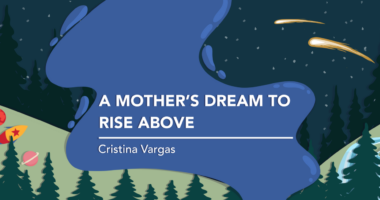Amicus Therapeutics Recruiting Children with CLN3 Batten Disease for Gene Therapy Trial

Amicus Therapeutics is recruiting children for its new Phase 1/2 clinical trial that will assess the safety and efficacy of an investigational gene therapy for Batten disease caused by CLN3 gene mutations.
The first child has completed a one-month observation period following dosing, with no reports of serious adverse events.
The study (NCT03770572) is being conducted at the Nationwide Children’s Hospital for Neurologic Lysosomal Storage Disorders in Columbus, Ohio, and expects to enroll seven children ages 3-10 who have received a confirmed diagnosis of CLN3 Batten disease.
Patients will be sequentially assigned to one of two treatment groups: the first group will receive a one-time, low-dose injection (given directly into the spinal canal) of the gene therapy, identified as AAV9-CLN3. The second group will receive a one-time, high-dose injection of the therapy upon evaluation of low-dose group participants by an independent data safety monitoring board (DSMB).
“The initiation of this clinical study in CLN3 Batten disease is an important initial milestone. The proof of concept demonstrated in preclinical studies and validation of the intrathecal AAV platform across multiple indications here at Nationwide Children’s Hospital provides promise for the delivery approach in this study,” Emily C. De Los Reyes, MD, principal investigator at Nationwide Children’s, said in a press release. “We look forward to enrolling additional participants in the study and comparing the findings to the existing natural history data in CLN3 Batten disease.”
All participants will be followed for three years after treatment administration. During this time, researchers will evaluate the incidence of treatment-related adverse events and the efficacy of the gene therapy, as determined using the physical disability subscale of the Unified Batten Disease Rating Scale (UBDRS) developed to assess patients’ motor, behavioral, and functional capability. Changes in quality of life, clinician’s global impression, and frequency of seizures also will be evaluated.
“With this pioneering study in CLN3 Batten disease, a severe and devastating neurodegenerative disorder with no approved treatments, we hope that a single intrathecal administration of our gene therapy has the potential to treat the underlying cause of disease and provide a durable and meaningful treatment benefit,” said Jay Barth, MD, chief medical officer at Amicus Therapeutics.
Barth added, “Together with other clinical data from an ongoing study (NCT02725580) in CLN6-associated Batten disease, these interim positive safety results “further support the encouraging safety profile for the intrathecal AAV delivery platform.”
This gene therapy was initially developed by Brian Kaspar, PhD, and Kathrin Meyer, PhD, at The Center for Gene Therapy from The Research Institute at Nationwide Children’s Hospital in collaboration with Arthur Burghes, PhD, a professor at Ohio State University.
It was designed to restore the levels of functional battenin protein in the nervous system, which is coded by the CLN3 gene and is faulty or lacking in CLN3 Batten disease.





